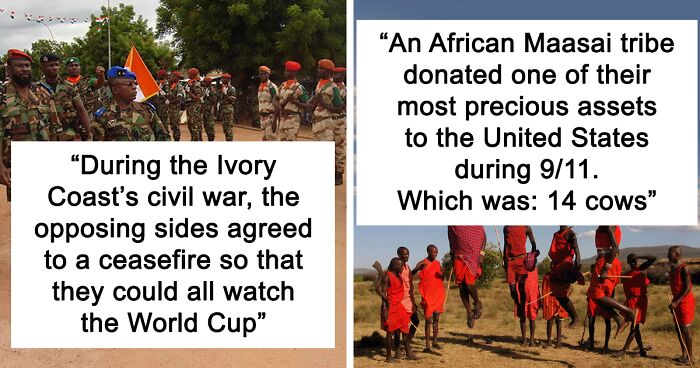
30 Wholesome Historical Facts They Probably Didn’t Teach You In School, As Shared By People In This Thread
History is far more than dates, big battles, painstakingly detailed lines of succession, and lists of technological innovations. History is the sum of all the experiences and interactions of humankind. At its core, it’s as much about large-scale processes as it is about individuals and the choices that they make, whether for good or for ill.
And though history is full of cruelty and evil, it’s also a testament to courage, goodwill, and charity during hard times. Curiously, what’s often absent from school curriculums is the fact that there have been countless examples of genuine empathy, wholesomeness, and humanity in the midst of war and misery. Members of the r/AskReddit online community shared some of these facts in the hope of giving everyone a fresh, more nuanced perspective about the past.
You’ll find the most heartwarming historical facts as you scroll down, dear Pandas. Upvote the ones that surprised you, and if you feel there’s something missing that you’ve read before, be sure to enlighten us all in the comments.
Bored Panda got in touch with Joe Pierre, MD, a professor of psychiatry at the University of California San Francisco (UCSF) and the author of the Psych Unseen blog on Psychology Today. We asked him about the potential dangers of completely dehumanizing the enemy, and touched on the idea of 'moral injury' during wartime. You'll find his insights below.
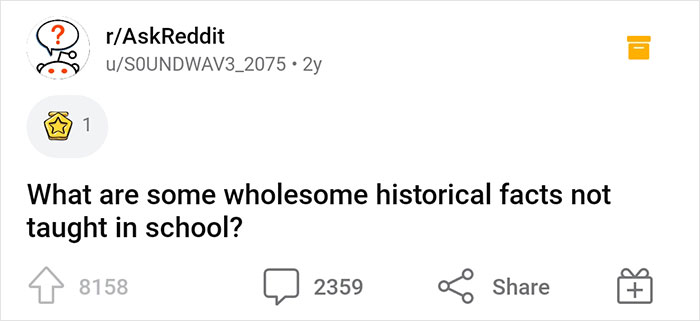
This post may include affiliate links.
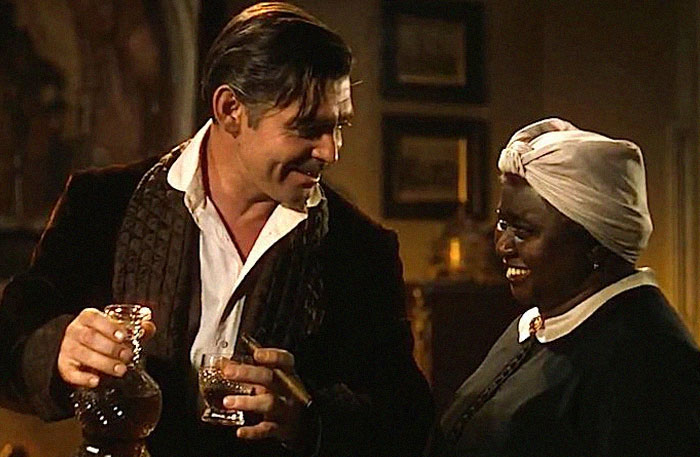 Clark Gable nearly quit *Gone With the Wind* early in production when he found out that the set was segregated. He told the director that either they'd take down the "white" and "colored" signs, or they'd have no Rhett Butler. He also wanted to boycott the Atlanta premiere when he found out that his black costars could not attend. He only went after Hattie McDaniel (who went on to be the first black Oscar winner for her role in the film) urged him to go. He remained close friends with her for the rest of his life.
Clark Gable nearly quit *Gone With the Wind* early in production when he found out that the set was segregated. He told the director that either they'd take down the "white" and "colored" signs, or they'd have no Rhett Butler. He also wanted to boycott the Atlanta premiere when he found out that his black costars could not attend. He only went after Hattie McDaniel (who went on to be the first black Oscar winner for her role in the film) urged him to go. He remained close friends with her for the rest of his life.
"Dehumanizing the enemy is a deliberate tactic of war that's intended to justify the killing of other people and assuage any moral guilt associated with doing so," Dr. Pierre explained to Bored Panda.
"The danger is that it paves the way towards abuses and war crimes," he said that this leads to the horrific treatment of civilians and even children.
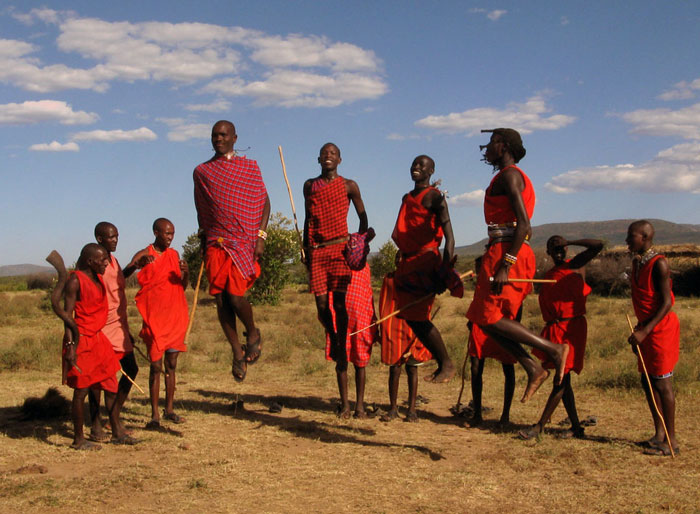 An African Maasai tribe donated one of their most precious assets to the United States during 9/11. Which was; 14 cows. To them his was their most precious thing they could give to America to heal.
That to me is wholesome right there.
An African Maasai tribe donated one of their most precious assets to the United States during 9/11. Which was; 14 cows. To them his was their most precious thing they could give to America to heal.
That to me is wholesome right there.
What happened to the cows AFTER they were gifted is an interesting story: “American diplomats flirted with the idea of shipping the animals to the Central Park Zoo. That proved too complicated. Then someone suggested selling them and using the proceeds to buy Masai jewelry for New Yorkers. But that seemed a little heartless. The indecision went on and on, and by Year 3, some of the Masai were feeling spurned. The cattle were growing fat — and going nowhere. In Masai culture, it is disrespectful to dillydally over such a gift…….Instead (of going to the US or being slaughtered), they will be blessed, and their offspring will be used to pay for education for the children of Enoosaen. To get the cow trust fund going, the Americans are donating 14 high school scholarships.”
 There was a huge fight about African Americans using the public pool in Mr. Roger's actual neighborhood so he made a episode on his show where he and a African American guest were sharing a kiddy pool and talking about being nice to people even if they look or sound diffrent. He taught a whole generation that rascim isn't fair or right.
This episode was filmed shortly after angry white people poured acid in a motel pool that was being used by Black families.
The actor in the show was supposed to be a police officer, and Rogers actually dried his feet.
The entire show was a very gentle and very subtle and ultimately very profound way of saying “f**k you” to bigots
There was a huge fight about African Americans using the public pool in Mr. Roger's actual neighborhood so he made a episode on his show where he and a African American guest were sharing a kiddy pool and talking about being nice to people even if they look or sound diffrent. He taught a whole generation that rascim isn't fair or right.
This episode was filmed shortly after angry white people poured acid in a motel pool that was being used by Black families.
The actor in the show was supposed to be a police officer, and Rogers actually dried his feet.
The entire show was a very gentle and very subtle and ultimately very profound way of saying “f**k you” to bigots
We also wanted to get the psychiatry expert's take on whether it's possible to 'balance' empathy for the enemy while also continuing to fight for what one's faction considers to be 'right.' Dr. Pierre noted that trying to look at 'balance' is the wrong approach here because of the brutality of war. Instead, it's important to consider the concept of 'moral injury.'
"Empathy can help us to 'play by the rules' of war, but so long as they're fought by killing each other, I'm not sure it really makes sense to talk about any kind of healthy 'balance,'" he told Bored Panda.
"In recent years, research in post-traumatic stress disorder (PTSD) has brought attention to the concept of 'moral injury' among soldiers," Dr. Pierre said.
"Moral injury arises when there's a kind of unavoidable cognitive dissonance between the sanctioned killing in war in the name of 'what's right' and universal moral standards like 'thou shalt not kill.' As we know all too well, war is hell, but for soldiers, the aftermath of war is often hell too."
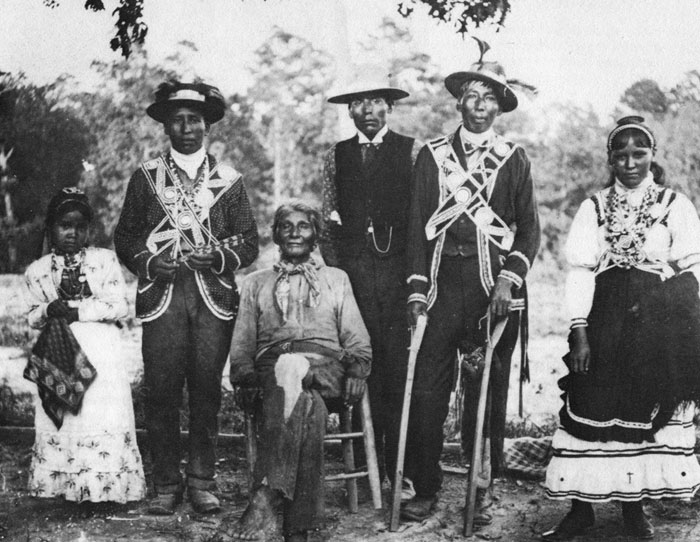 It's taught in Ireland but idk about the US. When we had the potato famine. Million of Irish were dying/emigrating. And the choctaw tribe heard of this and despite being extremely poor managed to raise I think around 200 dollars.
And now we've helped them out and raised 1.5 million to help them with covid 19!
It's taught in Ireland but idk about the US. When we had the potato famine. Million of Irish were dying/emigrating. And the choctaw tribe heard of this and despite being extremely poor managed to raise I think around 200 dollars.
And now we've helped them out and raised 1.5 million to help them with covid 19!
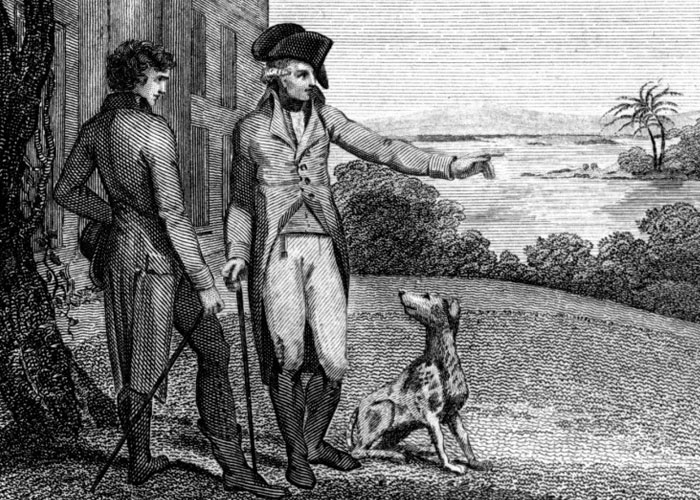 During the Revolutionary War a British general left his dog behind during a chaotic retreat. When the Continental Army found the lost dog, George Washington had a messenger go under a truce flag to return the dog to its owner.
During the Revolutionary War a British general left his dog behind during a chaotic retreat. When the Continental Army found the lost dog, George Washington had a messenger go under a truce flag to return the dog to its owner.
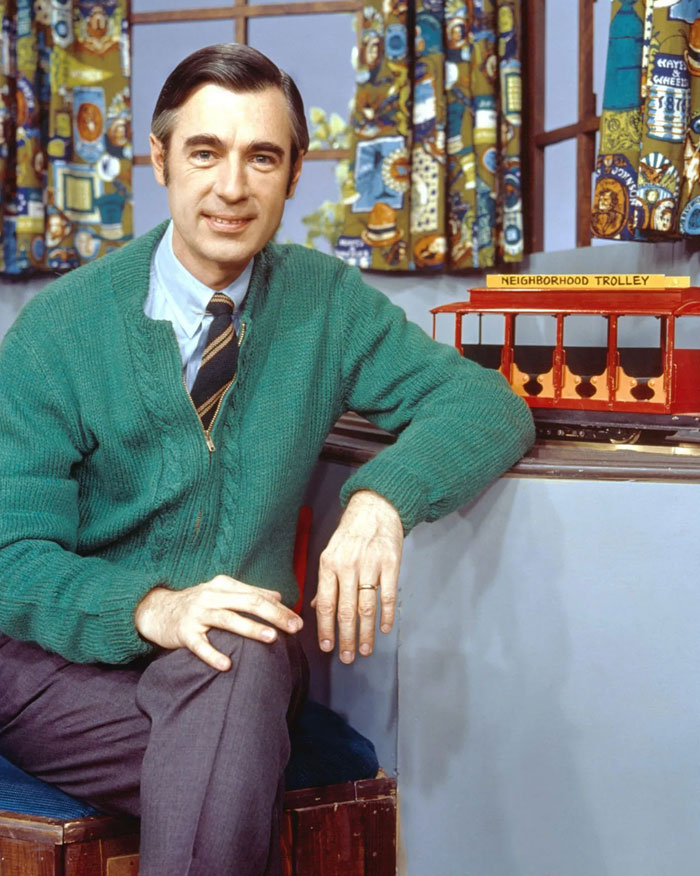 Mr. Rogers always said he was feeding his fish out loud because he had heard that a little girl who was blind was worried about them. So he audibly said it so she wouldn't have to worry anymore.
Not really a historical figure, but one we all know.
Mr. Rogers always said he was feeding his fish out loud because he had heard that a little girl who was blind was worried about them. So he audibly said it so she wouldn't have to worry anymore.
Not really a historical figure, but one we all know.
One popular example of historical empathy that most of you Pandas have probably heard of is the Christmas football truce that happened in 1914, a few months after the start of the First World War. In actual fact, it was a series of unofficial ceasefires leading up to December 25.
French, German, and British soldiers stationed in the Western Front went into no man’s land to talk, exchange food and souvenirs. Prisoner swaps and burials took place, as did carol-singing and games of football. However, fighting continued in some sectors. What’s more, as the war progressed, soldiers on all sides became increasingly bitter after the massive losses they endured. As a result, any further unofficial truces that followed were far smaller in scope and short-lived.
If anything, these examples from the pages of history are proof that charity, kindness, and empathy don’t stop the moment there’s a crisis or that war breaks out. Sometimes, it’s quite the opposite.
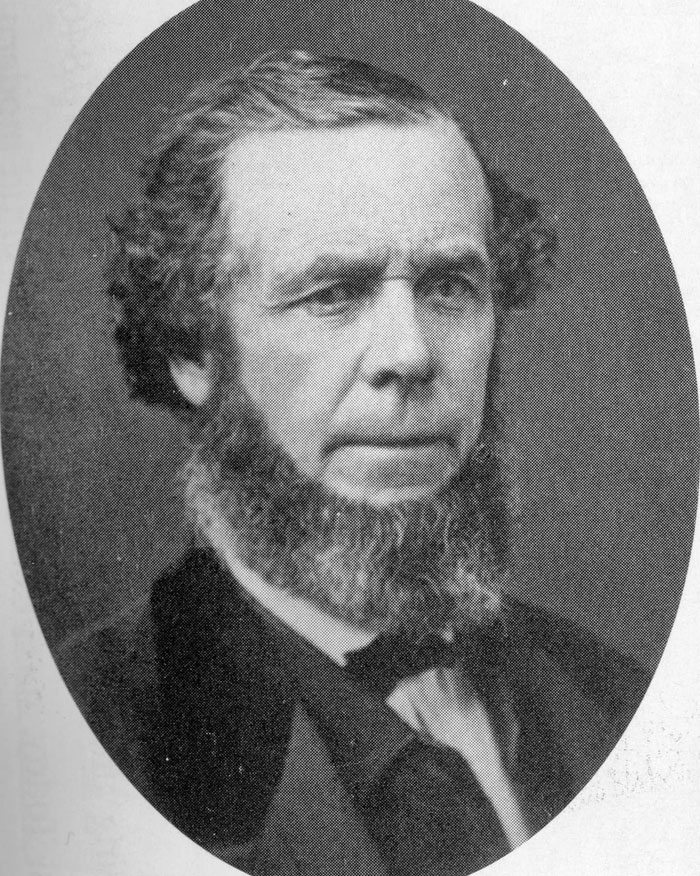 John Stark, one of the rescuers of the remaining survivors of the Donner Party. Apparently this 220-pound beast of a man rescued all nine children by carrying them out of a deep sunken snow pit, and laughed and joked with them the whole time:
"In Summit Valley the remaining rescuers discussed what to do and took a vote to save only two of the children in Starved Camp. That might have been all they could manage. The others would have to stay behind.
John Stark could not abide that. That meant that nine people, mostly children, would die on the mountain, exposed to the elements down in a very deep hole in the snow. John Stark decided he would save all nine, “Already shouldering a backpack with provisions, blankets, and an axe, he picked up one or two of the smaller children, carried them a little ways, then went back for the others. Then he repeated the whole process again and again and again. To galvanize morale, he laughed and told the youngsters they were so light from months of mouse-sized rations that he could carry them all simultaneously, if only his back were broad enough.” Once they were out of the snow he would eat and rest he said, but not before. He saved all nine.
James Breen, one of those in the pit at Starved Camp later said, “To his great bodily strength, and unexcelled courage, myself and others owe our lives. There was probably no other man in California at that time, who had the intelligence, determination, and what was absolutely necessary to have in that emergency.”
John Stark, one of the rescuers of the remaining survivors of the Donner Party. Apparently this 220-pound beast of a man rescued all nine children by carrying them out of a deep sunken snow pit, and laughed and joked with them the whole time:
"In Summit Valley the remaining rescuers discussed what to do and took a vote to save only two of the children in Starved Camp. That might have been all they could manage. The others would have to stay behind.
John Stark could not abide that. That meant that nine people, mostly children, would die on the mountain, exposed to the elements down in a very deep hole in the snow. John Stark decided he would save all nine, “Already shouldering a backpack with provisions, blankets, and an axe, he picked up one or two of the smaller children, carried them a little ways, then went back for the others. Then he repeated the whole process again and again and again. To galvanize morale, he laughed and told the youngsters they were so light from months of mouse-sized rations that he could carry them all simultaneously, if only his back were broad enough.” Once they were out of the snow he would eat and rest he said, but not before. He saved all nine.
James Breen, one of those in the pit at Starved Camp later said, “To his great bodily strength, and unexcelled courage, myself and others owe our lives. There was probably no other man in California at that time, who had the intelligence, determination, and what was absolutely necessary to have in that emergency.”
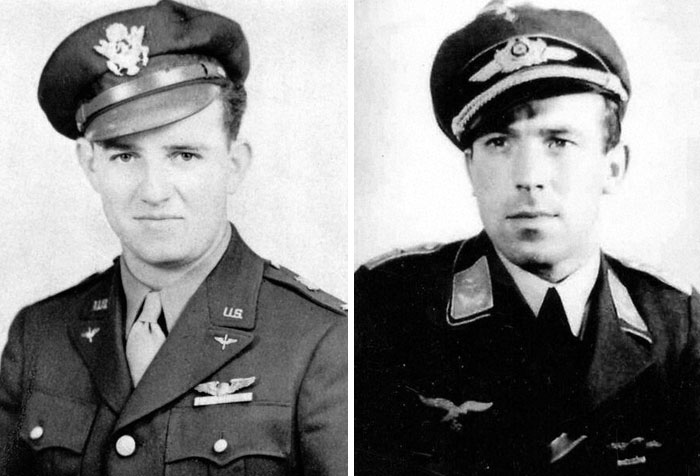 During World War II, a German fighter pilot spotted a damaged American bomber, and rather than shooting it down, he decided to escort it to safety. Decades later, the two pilots found each other and became friends.
During World War II, a German fighter pilot spotted a damaged American bomber, and rather than shooting it down, he decided to escort it to safety. Decades later, the two pilots found each other and became friends.
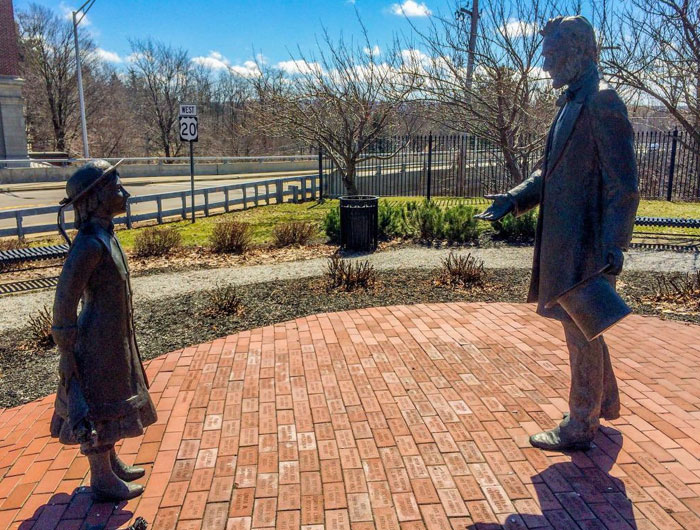 Abraham Lincoln decided to grow a beard because of 11 year old Grace Bedell. She had written him that she thought he would look more handsome and less sad with a beard and women would tell their husbands to vote for him.
So he grew a beard and was elected.
On his way to his inauguration, he took a train and passed through her hometown in Westfield, New York and met her.
Abraham Lincoln decided to grow a beard because of 11 year old Grace Bedell. She had written him that she thought he would look more handsome and less sad with a beard and women would tell their husbands to vote for him.
So he grew a beard and was elected.
On his way to his inauguration, he took a train and passed through her hometown in Westfield, New York and met her.
We’ve covered before on Bored Panda how people who are going through difficult times or have experienced them before, tend to be more compassionate and empathetic. Hardship can be the impulse that makes some people act more generously. When upheaval, chaos, and misery are everywhere, small acts of altruism are what can help us retain our sense of humanity and self. Kindness is also a way of establishing control in situations where we feel powerless: we do what good we can, with the resources that we have.
As for the reason why many of these wholesome historical facts are not well known, it all comes down to what stimulates people more. Though it’s a somewhat uncomfortable truth, most people enjoy reading and listening to stories that are more negative than positive. Kindness and wholesomeness don’t elicit responses that are strong.
During a previous interview with Bored Panda, Suzanne Degges-White, a licensed counselor and professor at Northern Illinois University, explained this phenomenon to us.
“When it comes to hearing information about the darker aspects of humanity, our brains experience greater stimulation when we hear stories of depravity than of kindness. It also has a ‘feel-good aspect’ for some folks as it normalizes and minimizes their own dark aspects or negative traits,” she said.
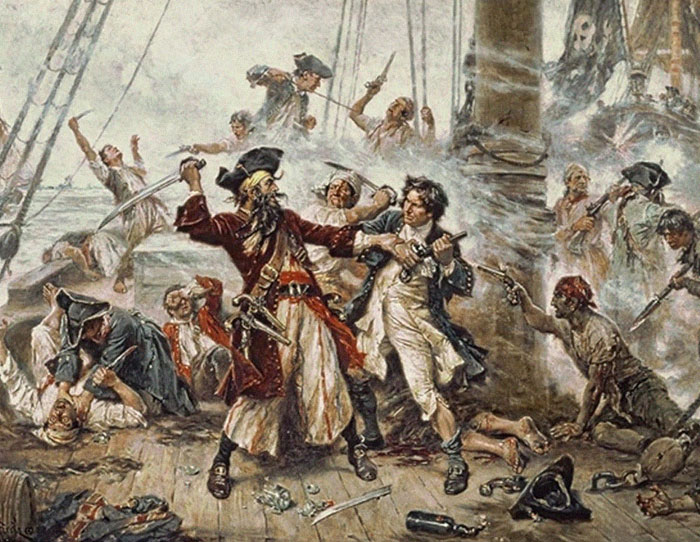 Pirate ships were... actually pretty great, relatively speaking. They were *very* democratic and pirate crews were pretty well-cared for. Also they took sexual assault against women very seriously (i.e., they killed you for it).
Pirate ships were... actually pretty great, relatively speaking. They were *very* democratic and pirate crews were pretty well-cared for. Also they took sexual assault against women very seriously (i.e., they killed you for it).
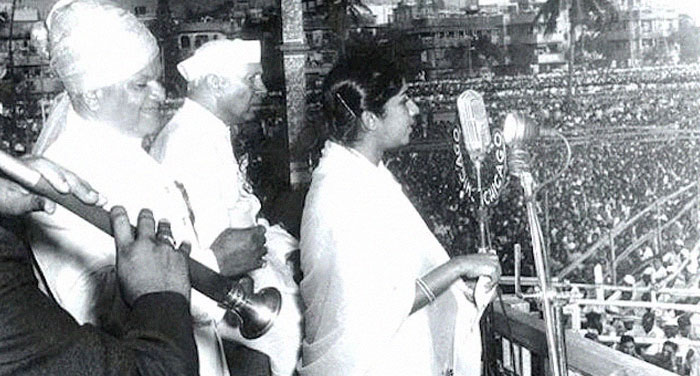 The India Pakistan border is one of the most disputed ones in the world, giving rise to the world renowned hostilities between India and Pakistan. There was a time once, a prominent Indian singer (namely Lata Mangeshkar) had gone to perform a concert for the soldiers there. As soon as the show began, Pakistani troops started firing rounds in the air, yelled obscenities and said," We want to hear her voice too!!" So indian forces turned up the speakers and pointed them towards the border. Pakistani forces returned the favour when prominent Pakistani singers came to perform for them.
The India Pakistan border is one of the most disputed ones in the world, giving rise to the world renowned hostilities between India and Pakistan. There was a time once, a prominent Indian singer (namely Lata Mangeshkar) had gone to perform a concert for the soldiers there. As soon as the show began, Pakistani troops started firing rounds in the air, yelled obscenities and said," We want to hear her voice too!!" So indian forces turned up the speakers and pointed them towards the border. Pakistani forces returned the favour when prominent Pakistani singers came to perform for them.
She passed away earlier this year and the fans on the both sides mourned her. She had a career of eight decades.
The Chicago public library originated with a donation of books from Queen Victoria following the Great Chicago Fire, she assumed the city's library had burned down.
“Whether it's greed, anger, promiscuity, and so on, when we hear just how bad someone else has been, it can make us feel better about our own tendencies towards the dark side traits. It also lets us imagine vicariously what it would be like to be ‘that bad,’” the professor pointed out to Bored Panda earlier.
“It's kind of like watching all the true crime shows—we enjoy being scared, we enjoy seeing into the minds of people doing things we never would, and it's exciting and novel to see just how far people can go in terms of their dark sides.”
It’s important to be aware of this and to make yourself look beyond just negative news stories and historical facts about brutality and misery. History isn’t just black, it’s also white, and varying shades of grey: the past is as nuanced as the present. And people don’t stop being people during times of crisis.
There was a Scotsman named Bill Millin who stood on the beaches at Normandy during D-Day calmly playing the bagpipes as shells and machine gun fire streaked past him. The Germans didn't shoot him because they figured he must have been insane.
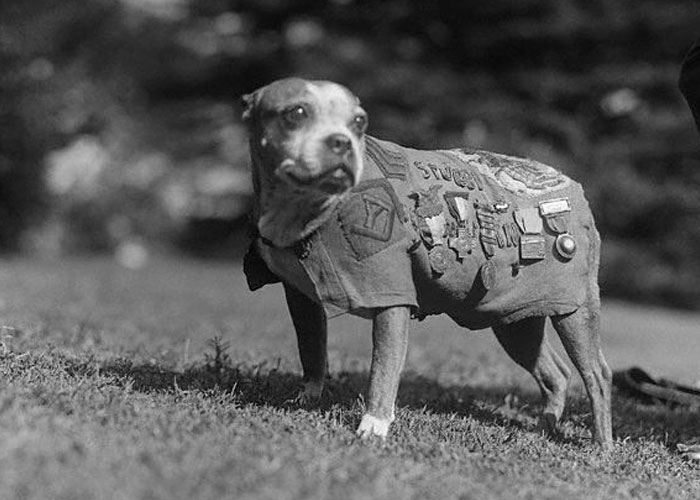 There was a dog in ww1 that helped sniff out mustard gas named Sargent stubby.
There was a dog in ww1 that helped sniff out mustard gas named Sargent stubby.
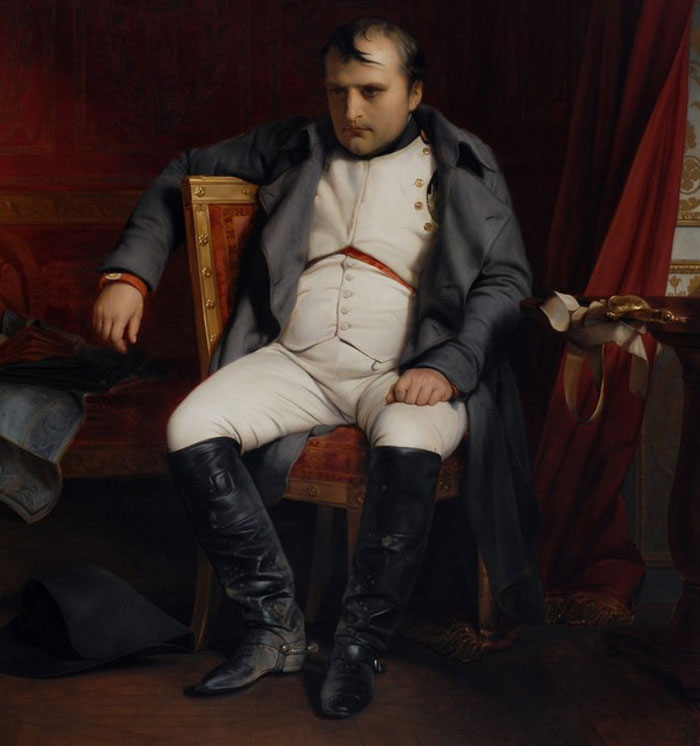 Napoleon was once nearly killed by being trampled by hundreds of rabbits.
Someone added:
He organised a hunt to celebrate a victory. But the guy got tame rabbits instead of wild ones. Instead of running when released they looked directly to who they recognised as the guy in charge (napoleon) because they knew the guy in charge meant food. Long story short they all charged him, he ran, he got trampled and severely injured.
I couldn't make this sh**t up if I tried.
Napoleon was once nearly killed by being trampled by hundreds of rabbits.
Someone added:
He organised a hunt to celebrate a victory. But the guy got tame rabbits instead of wild ones. Instead of running when released they looked directly to who they recognised as the guy in charge (napoleon) because they knew the guy in charge meant food. Long story short they all charged him, he ran, he got trampled and severely injured.
I couldn't make this sh**t up if I tried.
The doctor who invented surgical gloves, did it because he was madly in love with a nurse. After performing surgery she'd come home with hands rough and red from blood. He invented the gloves to protect the woman he loved, and every time I watch Grey's anatomy I think about that.
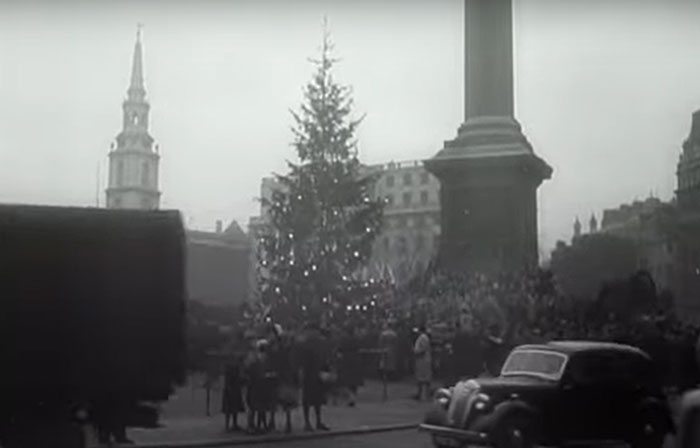 Norway sends an Xmas tree to London every year in thanks to the help we gave them in WWII. It's put up in Trafalgar Square.
Norway sends an Xmas tree to London every year in thanks to the help we gave them in WWII. It's put up in Trafalgar Square.
And for the past two years Londoners looked really hard into the mouth of a gifted horse.
 When persecuted Zoroastrians from Persia came to the kingdom of Sanjan in the West coast of India as refugees, the king wasn't sure if he wanted to offer them refuge. So he sent them a full glass of milk implying his kingdom is full.
The leader of the Zoroastrians added some sugar to the milk and sent it back to imply the refugees would become part of the kingdom and make it sweeter.
They got to stay, and though are a micro-minority, they are one of the most successful community which has left its imprint on every aspect of India.
When persecuted Zoroastrians from Persia came to the kingdom of Sanjan in the West coast of India as refugees, the king wasn't sure if he wanted to offer them refuge. So he sent them a full glass of milk implying his kingdom is full.
The leader of the Zoroastrians added some sugar to the milk and sent it back to imply the refugees would become part of the kingdom and make it sweeter.
They got to stay, and though are a micro-minority, they are one of the most successful community which has left its imprint on every aspect of India.
 When the Pharaoh Mentuhotep II's harem daughter died around 2050 BC, he mourned. She was only five years old.
Her tomb, touchingly, was inscribed with the pet name "Myt." This is translated to "kitten."
When the Pharaoh Mentuhotep II's harem daughter died around 2050 BC, he mourned. She was only five years old.
Her tomb, touchingly, was inscribed with the pet name "Myt." This is translated to "kitten."
 In 2006, while the Ivory Coast was in the midst of a civil war, the opposing sides agreed to a ceasefire so that they could all watch the World Cup. The break in fighting paved the way for a peace agreement a year later.
In 2006, while the Ivory Coast was in the midst of a civil war, the opposing sides agreed to a ceasefire so that they could all watch the World Cup. The break in fighting paved the way for a peace agreement a year later.
During WWI, germans and brits ceased fire on Christmas day to exchange gifts and play soccer (football)
I once went to a football match between Cote Ivoire and Gambia (in Gambia). The Ivorians scored first, and all hell broke loose, bottles and cans were thrown by the Gambians. The Ivorians replied "No, no that is bad!. The Gambians responded "We're sorry" The match ended 1-1 x
Wow! Yet another major difference between football and American football. Major US football games are likely to result in some level of riot, regardless of which team wins or loses. Really disgraceful
Load More Replies...War sucks. For everyone. No matter the cause. Thank goodness the ceasefire ✌️
Football has a big affect on what people will do. Glad in this case it was peace
 The F1 German grand Prix, in 1976.
After Nikki Lauda crashed, while hitting a barrier and catching alight, rival drivers: Arturo Merzario, Guy Edwards, Harald Ertl and Brett Lunger all stopped their cars and ran to Lauda's aid. There are many such instance of this happening during the '50s right through the '80s, of championship drivers forfeiting a win to save a rivals life.
The F1 German grand Prix, in 1976.
After Nikki Lauda crashed, while hitting a barrier and catching alight, rival drivers: Arturo Merzario, Guy Edwards, Harald Ertl and Brett Lunger all stopped their cars and ran to Lauda's aid. There are many such instance of this happening during the '50s right through the '80s, of championship drivers forfeiting a win to save a rivals life.
I'm an Indian. Only after a lot of research on the internet, I came to know that homosexuality was very normal in ancient India. The sculptures, the poems are just so GAY. Only after the advent of British colonialism, those stuff became taboo or even a crime here. It's a shame that they don't teach that in school considering how accepting ancient India was.
like in old germany, a 15th century? king (fredrick the great?) was bashed for playing "second fiddle" in a relationship with a french king. not for being gay but for being submissive.
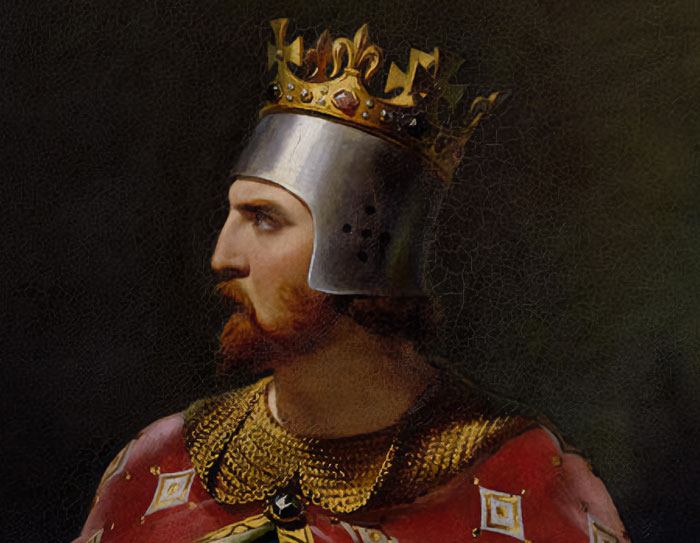 During the crusades when Richard the Lionhearted had a fever, all he wanted at the moment was some fruit and a cold drink. His enemy, Saladin, the Sultan of Egypt who had seized control over Jerusalem, heard the news and sent him peaches, pears, and a shipment of ice from a mountain. When he heard that King Richard's horse had been killed, he sent him a bunch of new horses and a stable boy.
During the crusades when Richard the Lionhearted had a fever, all he wanted at the moment was some fruit and a cold drink. His enemy, Saladin, the Sultan of Egypt who had seized control over Jerusalem, heard the news and sent him peaches, pears, and a shipment of ice from a mountain. When he heard that King Richard's horse had been killed, he sent him a bunch of new horses and a stable boy.
Those two opponents were mortal enemies, but they seem to have had great professional respect for each other. And they were used to this kind of games. There is a famous tale of Richard awaking one day in his heavily fortified and guarded bedroom, seeing a cake on his nightstand - left by one of Saladin's Assassins as a message "See? We could have killed you if we wanted to..."
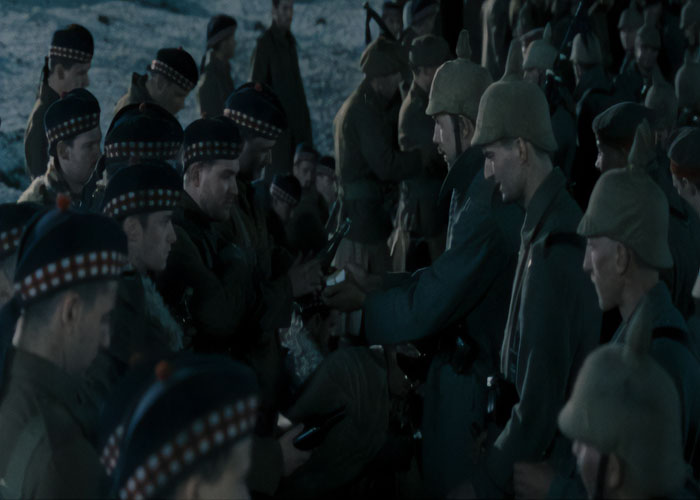 On Christmas Day 1914, Both of the sides of WW1 celebrated Christmas together with songs and games. This type of celebrations happened over the whole front in Belgium and France. The soldiers talked to each other like they weren't in war together. Many soldiers wrote in their diary that they didn't expect the enemy to be so kind and friendly and that they wanted to meet with them when the war was over.
But a few days later, the leaders of the armies found out about the celebrations and forbid any future meetings between the two sides. They were a few attempts to reconnect (during Easter and Christmas) but the soldiers who attempted were punished or killed.
On Christmas Day 1914, Both of the sides of WW1 celebrated Christmas together with songs and games. This type of celebrations happened over the whole front in Belgium and France. The soldiers talked to each other like they weren't in war together. Many soldiers wrote in their diary that they didn't expect the enemy to be so kind and friendly and that they wanted to meet with them when the war was over.
But a few days later, the leaders of the armies found out about the celebrations and forbid any future meetings between the two sides. They were a few attempts to reconnect (during Easter and Christmas) but the soldiers who attempted were punished or killed.
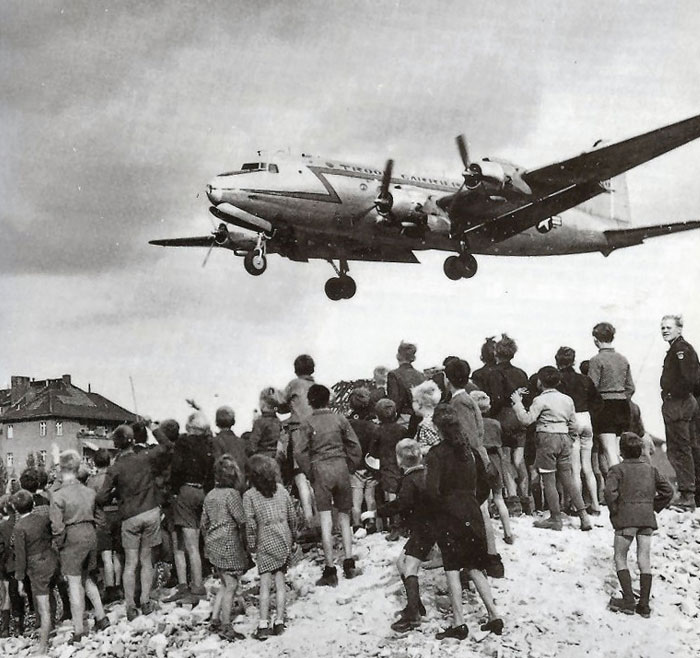 The Candy Bomber. After World War 2 ended and Berlin was divided, the UK and US dropped food into west Berlin by plane. One Pilot, Gail Halvorsen started to donate his candy rations to the children and soon other pilots started doing the same. To let the children know that it was his plane - the one with the candy- they would "wiggle the plane's wings" before the drop. Word spread and more and more children would come and it started a new PR campaign and started to change the mindset that Americans had of giving food aide to Europe. I always thought the story was really sweet.
The Candy Bomber. After World War 2 ended and Berlin was divided, the UK and US dropped food into west Berlin by plane. One Pilot, Gail Halvorsen started to donate his candy rations to the children and soon other pilots started doing the same. To let the children know that it was his plane - the one with the candy- they would "wiggle the plane's wings" before the drop. Word spread and more and more children would come and it started a new PR campaign and started to change the mindset that Americans had of giving food aide to Europe. I always thought the story was really sweet.
Gail Halvorsen died earlier this year. One of those planes, called candy bomber in english, or Rosinenbomber in german is still on display in Berlin. It used to be at the old Tempelhof Airfield. Now it's at the Deutsche Technikmuseum. The soviets cut Berlin off all land or water connections to West-Berlin from 24 June 1948 - 12 May 12 1949, it officially ended 30 september 1949. It's estimated Berlin would have run out of food after a month. For almost a year 2,2 million people had to get everything brought in by plane. Every three minutes a new plane would come, drop down, drop whatever material they had on board, coal, food, building materials, up to 12.849t per day, and 1398 planes during 24 hours. The Luftbrücke helped the people of Berlin survive the winter that year. The pilots were british, us-american, french and australian, from new zealand, canada and south africa. If you want to get the feels read the wikipedia article. https://en.wikipedia.org/wiki/Berlin_Blockade
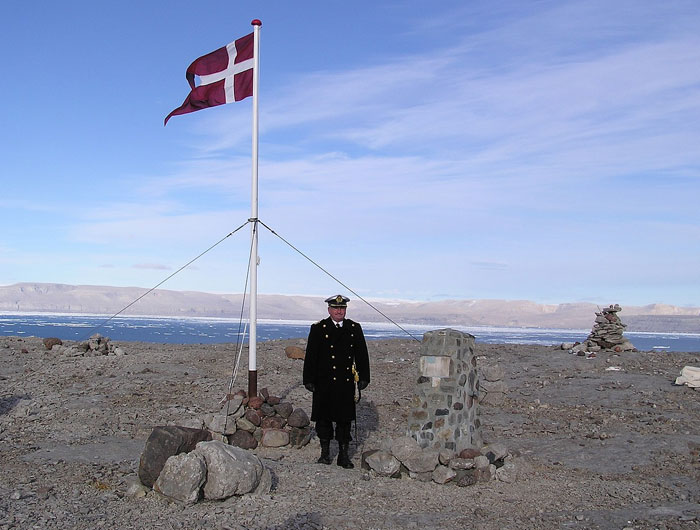 For 30 years, Canada and Denmark were fighting a brutal "war" over an Island in North, by leaving their own homemade whiskeys and troll letter.
For 30 years, Canada and Denmark were fighting a brutal "war" over an Island in North, by leaving their own homemade whiskeys and troll letter.
Horton Hears a Who was written for a Japanese friend of Dr. Seuss immediately following WWII. He wrote it as an allegory about the importance of forgiveness and humanity in a time where much of the world was still bitter at Japan for their role on the war. Horton represents the United States who speaks up for Whoville, the Japanese, to remind them that "a person is a person no matter how small."
 Every year the Province of Nova Scotia sends a Christmas tree to Boston as thanks for aid after the Halifax Explosion
Every year the Province of Nova Scotia sends a Christmas tree to Boston as thanks for aid after the Halifax Explosion
I believe that the Halifax explosion was the largest non-nuclear detonation ever, correct me if I'm wrong, but it holds the record to this day
After Commodore Perry forced the opening of Japan to foreign trade, Japan signed many unequal treaties with Western nations. 1888, Mexico signed another treaty with Japan, but Mexico viewed Japan as an equal. The 1888 Mexican-Japanese treaty was the first time a Western nation treated Japan as an equal. In the late 1930, facism was advancing through the world and no one dared to oppose it. Except for Mexico. Mexico was the only country that openly protested against the Japanese invasive of Manchuria, the Italian invasion of Ethiopia, Italian and German involvement in the Spanish Civil War (along with the USSR), and finally, the German annexation of Austria.
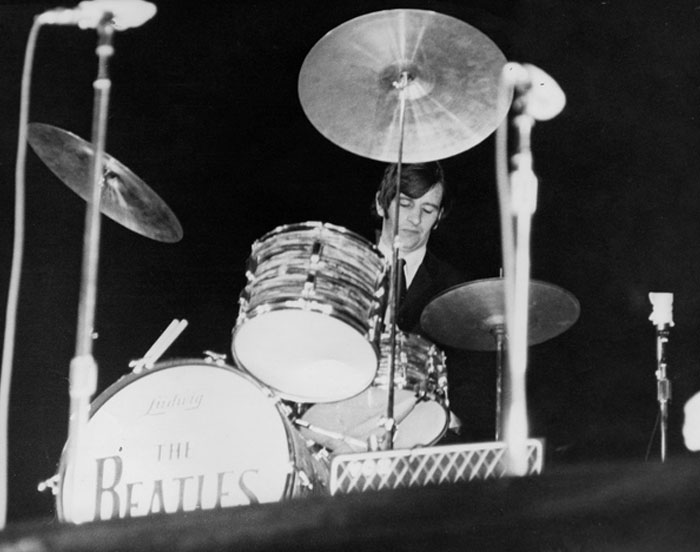 Ringo Starr once decided the Beatles didn’t need him and decided to take a holiday with the intention of never coming back.
When John, Paul and George found out they went all the way to where he was staying just to convince him to come back.
Freakears replied:
As I recall, he got sick of all the bickering during the recording of the White Album (so it's actually Paul playing the drums on the first few songs). When Ringo came back, his drum kit was all decked out with flowers.
Ringo Starr once decided the Beatles didn’t need him and decided to take a holiday with the intention of never coming back.
When John, Paul and George found out they went all the way to where he was staying just to convince him to come back.
Freakears replied:
As I recall, he got sick of all the bickering during the recording of the White Album (so it's actually Paul playing the drums on the first few songs). When Ringo came back, his drum kit was all decked out with flowers.
When Richard II was crowned King of England in 1377, he was only ten years old. After the ceremony at Westminster it was tradition for the king to progress through the streets to his coronation banquet, so people could gather around and see him. Well, Richard was too small, surrounded by all his guards and retainers, so instead of walking, his tutor Simon Burley picked him up and carried the little king on his shoulders. At some point during the walk, Richard (called Dickon by his family) lost a slipper and was allegedly later chastened by his mother. Idk it's wholesome to me that little kids are little kids, even when it's the middle ages and they're king of England.
Where in the Dickons did you lose your shoe, Dickon 🤔
The man that shares Muhammad Ali's birth name, Cassius Clay, was a staunch abolitionist representative in Kentucky pre civil war. He was notable for starting an abolitionist newspaper(that he armed with *two* cannons and several small arms to defend it with), fought off several pro-slavery attackers throughout the years, and pressured Lincoln to free all slaves in America. Plus, his house was broken into when he was in his 80s, I believe, and he killed one attacker and wounded another before they fled. The man was a legit badass who fought for what was right in a place that no one would have blamed him for keeping quiet, and to me, that's pretty god damn wholesome.
That dogs have really always been man's (humans') best friend. Archeologists have found many inscriptions, the most touching of which is, "*I am in tears, while carrying you to your last resting place as much as I rejoiced when bringing you home with my own hands 15 years ago.”* More here: [https://www.littlethings.com/ancient-dog-memorials/5](https://www.littlethings.com/ancient-dog-memorials/5)
The Danish citizenry saved many Jews during WWII, and despite being occupied by the Nazis, it was the covert subversive activities of each individual that made it successful.
During the early years of the Ottoman Empire, Muslims, Jews and Christians fought side by side and considered each other as brothers.
wow, the past was a more united place during troubles such as the founding of an empire than entire countries are during a cold outbreak on steroids.
We sometimes find roof tiles in places such a Pompeii with animal prints in them, possible accidents from when they were being created. Just the little things like this that remind one of how not too different the ancient world was to today.
 My Balkanic friends have told me that the bitter combats of the wars after the break up of Yugoslavia used to stop because both sides liked watching Mexican soap operas.
My Balkanic friends have told me that the bitter combats of the wars after the break up of Yugoslavia used to stop because both sides liked watching Mexican soap operas.
Show soap operas 24/7 then! Get everyone glued to their TVs, so that they forget to fight. Telenovelas are so dramatic that if you miss one episode, everything might be changed and you don't know what's happening anymore.
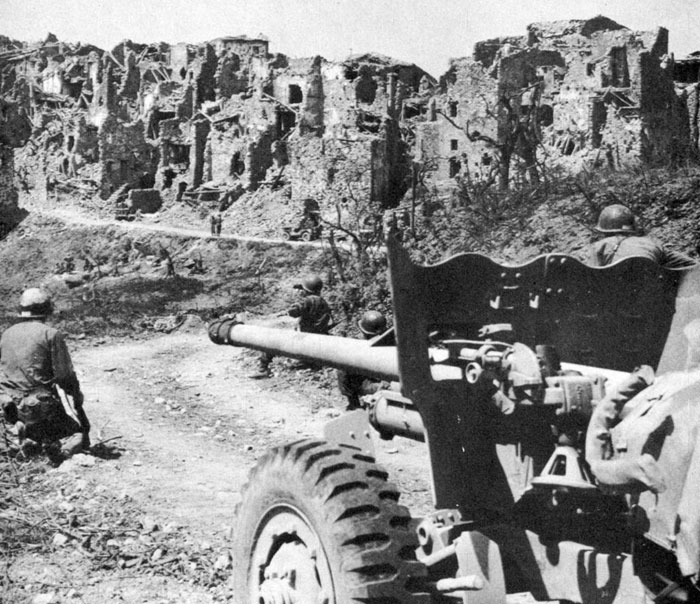 That during the battle of Monte Cassino (WW2) The Germans and Allies agreed to a ceasefire so the medics could heal. Medics from both sides helped each other and exchanged supplies.
During WW1, there were multiple instances of massive troops on both sides mutinying and refusing to fight each other. The funny part is, neither side knew the other was doing it. British troops would refuse to fight, and the German's never knew, and vice versa. Just one attack at the right moment, and history could change. Also, this happened in the latter part of the war.
There was a buisnessman named Schindler, who convinced the Nazi's to allow him to use concentration camp workers. Instead of producing mass weapons, he saved thousands, and went to high ranking parties with top brass to convince them he was succeeding. I once read he bribed some camp guards to allow the prisoners access to all the food storage once the war was winding down and the Nazi's left the camps. He died, but is the only member of the Nazi party that is on a plaque and regarded as a hero in Israel. Rip
That during the battle of Monte Cassino (WW2) The Germans and Allies agreed to a ceasefire so the medics could heal. Medics from both sides helped each other and exchanged supplies.
During WW1, there were multiple instances of massive troops on both sides mutinying and refusing to fight each other. The funny part is, neither side knew the other was doing it. British troops would refuse to fight, and the German's never knew, and vice versa. Just one attack at the right moment, and history could change. Also, this happened in the latter part of the war.
There was a buisnessman named Schindler, who convinced the Nazi's to allow him to use concentration camp workers. Instead of producing mass weapons, he saved thousands, and went to high ranking parties with top brass to convince them he was succeeding. I once read he bribed some camp guards to allow the prisoners access to all the food storage once the war was winding down and the Nazi's left the camps. He died, but is the only member of the Nazi party that is on a plaque and regarded as a hero in Israel. Rip
Pennsylvania was founded by Quakers who believed that the "light of God" shined in everyone regardless of ethnicity or religion. They were known for treating the indigenous people relatively well and welcomed the first synagogue in North America in Philadelphia.
And now the “city of brotherly love” has at least 1 murder every single day
Xenophon’s “Cynegeticus” is a book about hunting with dogs. He goes over popular dog names in Classical Greece and constantly refers to his dog Orme. Apparently whenever he would walk into his house, Orme would jump up on him and the only way to calm her down was to let her lick his face.
 The only reason the pilgrims stopped at Plymouth Rock was they were running out of beer. They had to grow barley and hops.
The only reason the pilgrims stopped at Plymouth Rock was they were running out of beer. They had to grow barley and hops.
In the Second World War, British Lieutenant-Commander Gerard Broadmead Roope was posthumously awarded the Victoria Cross because a German Admiral who witnessed his gallantry in action wrote to the British and recommended the award.
The fella had a peashooter, saw 2 destroyers and decided to attack, they ran (trying to draw him into a trap), he knew it was a trap but followed. He saw the German flagship cruiser (which was about 12-13 times the size of his ship), let the chain of command know where it was, then... decided to try and sink it! all of his torpedoes missed, he got shot to heck and back, was on fire and thought 'Sod it! I'll ram them!'. The man's testicles were bigger than his ship!
An actually true fact about Liechtenstein is that Switzerland accidentally "invaded" Liechtenstein during a Swiss army exercise when some soldiers got lost and accidentally walked into Liechtenstein. On two separate occasions. So Switzerland has accidentally invaded Liechtenstein, twice.
Within his fifty-year diary of the Hundred Years War in the fifteenth century, chronicling endless rapes, murders, and pillage, an anonymous writer in Paris found time to record that there was particularly heavy snow one year, and the citizens made some damn impressive snowmen. He also never fails to tell us whether the year's wine was good or bad (1424 was a winner) and complains when he can't get his hands on any fresh cherries or 'soft cheese from Brie'.
At the battle of castle Itter 30 German and American soldiers, along with French prisoners held at the castle, fought side by side against the SS soldiers who laid siege to the castle
That would be a potentially great film. https://en.wikipedia.org/wiki/Battle_of_Castle_Itter
During the Second World War, many Nazi prisoners were sent to Canada to be detained in POW camps till the end of the war. The stories told by the prisoner is nothing short of pure wholesomeness. Many of the prisoners were treated so well, they chose to stay in Canada after the end of the war.
There is a lion statue in Venice that has Viking runes graffiti on it.
Georgi Zhukov, a famous soviet military leader, was introduced to Coca Cola by the American Dwight D Eisenhower. Zhukov liked it, but he couldn’t drink it because it was too American. He ended up asking if they could make it look more like vodka. Eventually, they did, and sent him 50 cases of clear coke.
When ww2 was concluded the US military doubted the field reports of their own commanders to such an extreme degree that they ended up using the German field reports that are still used to this day as historical reference. And they say victors write history, literal opposite
Tutankhamun's most prized possession was his meteoritic iron dagger. Museum visitors are impressed by the gold.
gold was more common in those days but the small dagger was in his coffin with him.
When the Persians conquered Babylonia, they let the Jews return to Jerusalem and built them a new temple.
Captain Morgan actually existed. The face of the well-loved rum "Captain Morgan" brand was a real guy. He was a Welsh privateer who fought alongside the English against the Spanish in the Caribbean in the 1660s and 1670s. His first name was Henry and was knighted by King Charles II of England. His exact birth date is unknown, but it was sometime around 1635. He died in Jamaica in 1688, apparently very rich.
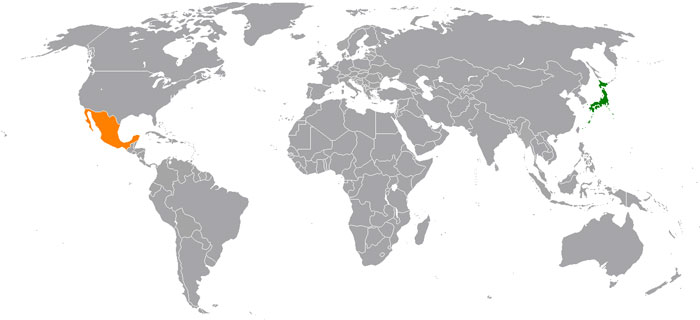 Besides during ww2 Qantas airlines has never had a fatal commercial jet plane crash since its formation in 1921
Besides during ww2 Qantas airlines has never had a fatal commercial jet plane crash since its formation in 1921
Admiral Yamamotto wanted to avoid going to war with the US because he attended Harvard and Yale and knew the American people would not react well to the attack on Pearl Harbor. He tried to get the Japanese government to change their minds on attacking America but since it was the Imperial Army controlling politics he still had the Navy prepare for Pearl Harbor
Stalin started a save the puppy campain during WW2 all dogs that couldnt fight were sent to damaged families around the USSR free of charge
Stalin starved 5 million to death, no amount of puppies makes up for that! https://www.britannica.com/event/Holodomor
Under a Supreme Court ruling in the 1800s tomatoes are considered a vegetable because you can’t make a dessert out of it. The ruling came from California having tariffs on fruits because at the time it was believed only people with a bit of wealth could buy fruit because they were only really used to make a dessert. Tomatoes where part of the tariff so people protested and the Supreme Court removed tomatoes from the tariff meaning they aren’t a fruit in the eyes of the law
It was in New York. In fact, imported tomatoes were taxed as vegetables. One of the importers took the government to court because he claimed that tomatoes were a fruit and should be taxed at the lower rate. Thus, he was owed a refund. The court recognized that tomatoes were a fruit from a botanical point of view but that in actual usage, they were used in the same way as vegetables - not to make desserts but as part of a salad or main dish. Thus, they should be taxed as vegetables. I teach this case in my forensic linguistics class.
The Republican party was founded in opposition to a piece of pro-slavery legislation called the Kansas-Nebraska act
That the first known civilization where the woman was the head of the house was the Minoan Civilization of Crete, but it got destroyed by the tsunami made by the Santorini's volcano explosion in 1613 BC. Also, it's an urban myth that Socrates said that the north part of the island that got sunk because of the tsunami was Atlantis.
I believe I read that the Iroquois nation is also a matriarchal society. I think they predate the Minoan civilization as the Bering Strait land bridge was crossed about 25,000 years ago. Can a panda verify this ?
In 1952, Albert Einstein declined an offer to become the second president of the State of Israel.
Bloody Mary may have imprisoned her half sister Elizabeth in the Tower of London to create karma for her mother's imprisonment for life, but Mary actually released her and made up with her right before her death, for they became friends in that short time.
She was dying and knew the protestant half-sister was going to take over, and wanted to save her legacy/Catholicism in England.
There was a ruler way back in ancient times, and he was convinced he could control everything under his rule including the sea. He marched his troops out to the sea and asked it to obey him. A big wave came in and knocked them all down.
That was King Cnüt (with the ü because of bored panda censoring) (not king c**t, I spelt that wrong in history class) and some sources say he did that to prove he cannot control everything. others say he was a cracked up as Trump, but as an english kid, I hope the former is true.
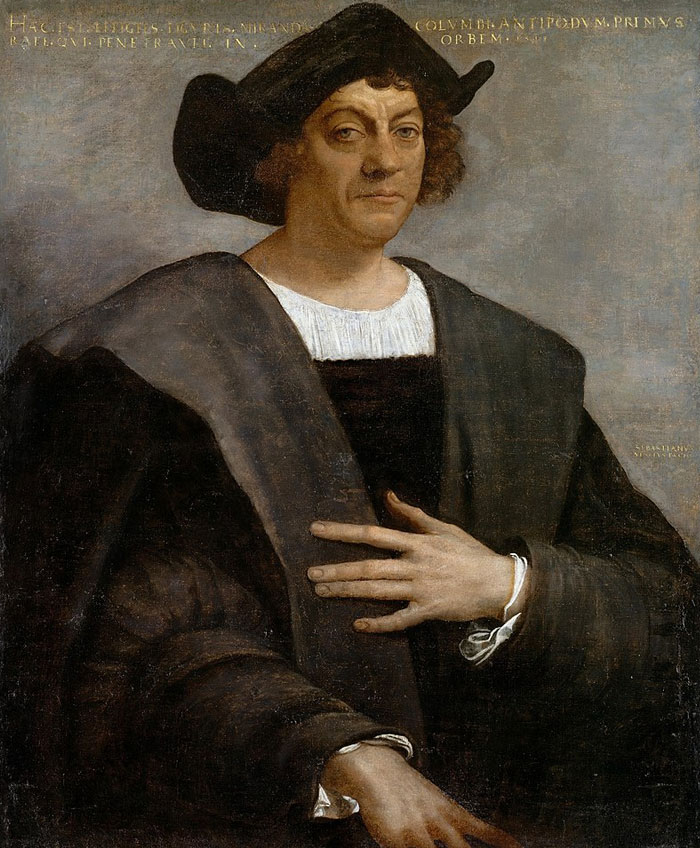 Columbus had a beloved cat named Nicholas, and he actually only chose to sail with a Spanish flag because Queen Isabella famously loved cats.
Columbus had a beloved cat named Nicholas, and he actually only chose to sail with a Spanish flag because Queen Isabella famously loved cats.
Until the invention of submarine warfare, it was widely considered an abominable war crime to sink a ship and not try to save its crew. Sinking civilian shipping was completely off-limits if preparations were not made to rescue the entire civilian crew *and* transport them to safety at a port somewhere. It is still technically considered part of customary international law, but it wasn't enforced in WW1 or WW2 because both sides committed this war crime. *Tu quoque* (Latin meaning "you too") was a valid legal defense in war crimes trials. No Germans could be convicted of a war crime if they could show that the Allies had committed the same crime. An attempt was made to charge a German admiral for having a submarine attack merchant shipping and not save the drowning crew, but he was not convicted, because British and American naval forces had done the same thing.
Pandas why don't we all go out and make more wholesome history starting today💪🤗♥️
I was walking through my neighborhood a few weeks ago and someone had a "little free art studio", like a little free library, but with art supplies instead of books. They had a little stand set up with a few tubes of paint, some brushes and paper. I have a picture, but I have no idea how to post pictures in the comments here ☹️
Load More Replies...Doing nice things to/for people when they either really need it or least expect it is what it takes sometimes to make me happy. The other night I won at a casino and randomly gave each person next to me each $100. Honestly I think that made me happier then winning. Before I left I was going to play one last machine but instead gave the $20 to a person that was just watching other people play. I know for a fact that made me feel better then if I had put it in a machine. What's weird is I get embarrassed so the interactions are very brief. I don't know why giving to strangers is so embarrassing but rewarding at the same time.
Are you not embarrased of writing this comment? I mean yeah, bored panda writers could use some new things, but if you don't like it, just leave. Easy as that
Load More Replies...Pandas why don't we all go out and make more wholesome history starting today💪🤗♥️
I was walking through my neighborhood a few weeks ago and someone had a "little free art studio", like a little free library, but with art supplies instead of books. They had a little stand set up with a few tubes of paint, some brushes and paper. I have a picture, but I have no idea how to post pictures in the comments here ☹️
Load More Replies...Doing nice things to/for people when they either really need it or least expect it is what it takes sometimes to make me happy. The other night I won at a casino and randomly gave each person next to me each $100. Honestly I think that made me happier then winning. Before I left I was going to play one last machine but instead gave the $20 to a person that was just watching other people play. I know for a fact that made me feel better then if I had put it in a machine. What's weird is I get embarrassed so the interactions are very brief. I don't know why giving to strangers is so embarrassing but rewarding at the same time.
Are you not embarrased of writing this comment? I mean yeah, bored panda writers could use some new things, but if you don't like it, just leave. Easy as that
Load More Replies...
 Dark Mode
Dark Mode 

 No fees, cancel anytime
No fees, cancel anytime 













































































